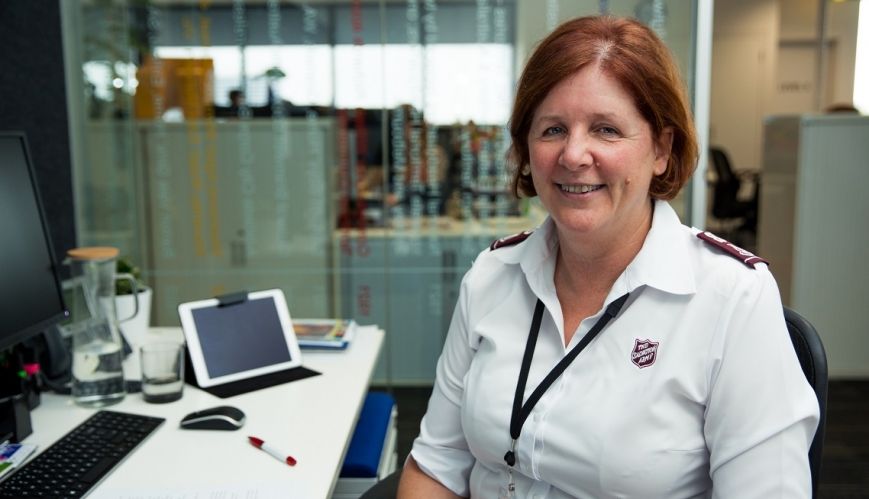Q&A with new Chair of Moral and Social Issues Council

Q&A with new Chair of Moral and Social Issues Council
10 April 2018
Lieutenant-Colonel Donna Evans is the new Chair of the Moral and Social Issues Council in Australia.
Lieutenant-Colonel Donna Evans, National Head of Officer Personnel, took up the additional appointment of Moral and Social Issues Council (MASIC) Chair on 29 March. She has been serving as Vice Chair of the council for the past year. Others spoke to Lieut-Colonel Evans to find out more about her new appointment, and the vital role MASIC plays in the life of The Salvation Army and beyond.
Q: What is MASIC and what role does it play in Australia?
A: MASIC is the Moral and Social Issues Council, a group of thinking Salvos from various walks of life, ages, genders, and with a range of specialties and educational backgrounds who meet consistently throughout the year from all over Australia. MASIC grapples with thinking through difficult issues within Australia; produces short, written, pastoral responses to these issues; updates The Salvation Army’s positional statements as required; and endeavours to contribute to what The Salvation Army might be saying in the public arena. We are asked to advise the National Commander and Cabinet on certain issues. We are also tasked with encouraging all Salvos to think through moral issues in an informed and ethical way.
Q: What does being Chair of MASIC actually mean?
A: I would see my role as capturing the wisdom and expertise of firstly the members of MASIC, but also Salvos across the nation where possible, and keeping focus on the issues that really need our attention.
Q: Is MASIC linked to IMASIC (the Army's International Social and Moral Issues Council) and if so, in what way?
A: We have strong links with IMASIC. One of our MASIC members, Casey O'Brien Machado (Social Justice Coordinator based in Sydney) is a member of IMASIC, so we have an Aussie voice internationally, and we endeavour to work together with them as required on important issues. At times IMASIC has asked the Australian MASIC to take the lead on doing the initial work on an international positional statement. The latest positional statement on Asylum Seekers and Refugees is one such example.
Q: What are some of the topics currently being discussed in MASIC?
A: MASIC has been spending some time engaging with the idea around how can we help Australian Salvationists think about complex moral and social issues in a thorough, safe and theologically informed manner, exploring concepts around different ethical models, conscience, and how our traditions and our scriptural foundations all help to form our moral judgments. Specific topics include a comprehensive rewriting of our paper on social justice, which should be available soon, as well as surrogacy, euthanasia, and Indigenous issues. This last topic has been benefitted greatly by engagement with Indigenous Salvos and we are keen to enhance and strengthen that tie.
Q: What are some of the challenges faced by MASIC?
A: The fast-paced changes that occur within our society mean that MASIC really has to be flexible and ready to address issues as they arise. Another challenge at times can be acknowledging that even within The Salvation Army, there can be a myriad views about certain moral and social issues and as such we need to try and make sure our conversations are open and inclusive. Yes, we hold certain positions to be true, however we want to encourage healthy conversations around difficult topics and not shut down the dialogue. It is about ensuring that healthy disagreement is considered to be an acceptable outcome and that it doesn't descend into harmful conversations.
Q: How often does MASIC meet?
A: MASIC meets every two months, either in a face-to-face meeting or via an online meeting. We also gather once a year for a national conference. Between meetings we work together on various projects via email.
Q: How is the agenda decided?
A: By the National Commander, members of the council and also Salvos who might write and ask us for a response to a particular issue.